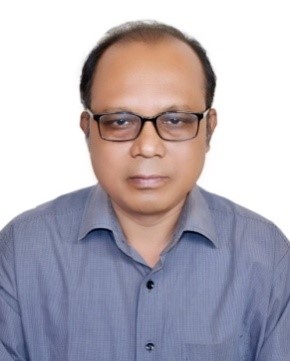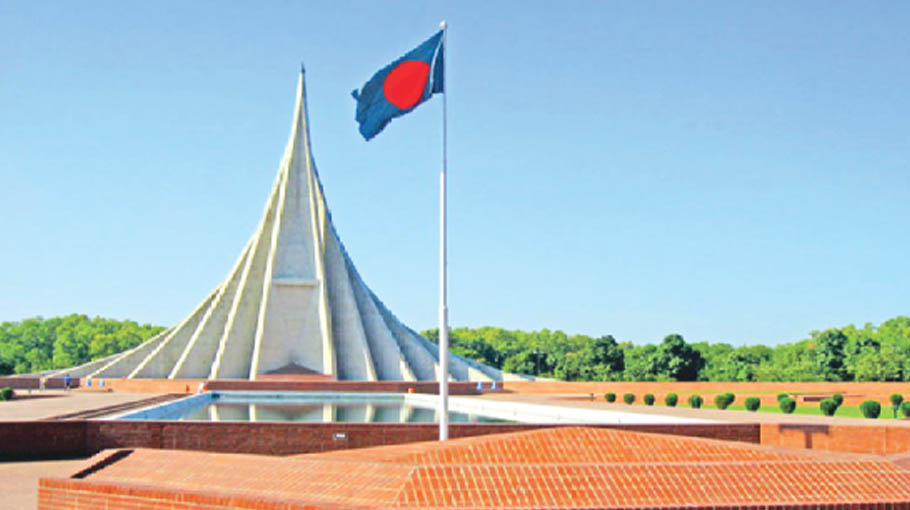Month of Victory begins
‘Sacrifice of 3 million people gave us freedom’

The Bangali nation starts celebrating the Month of Victory with much festivity and enthusiasm amid a series of programmes today (Wednesday).
Today is the first day of December, the Month of Victory.
And the nation is celebrating the Golden Jubilee of the country's Independence at a time when Bangladesh achieved the status of a developing country.
This month is very important to the Bangali nation’s history as a new sovereign country was created on the map of the world as Bangladesh on December 16 in 1971.
Fifty years ago on December 16, Bangladesh was liberated from the Pakistani occupation forces after a nine-month-long bloodstained War of Liberation. We earned the freedom due to the supreme sacrifices of three million people and the honour of nearly half a million women.
In this historic moment of observing the golden jubilee of the country’s Independence, Prime Minister Sheikh Hasina’s commitment is to take Bangladesh to a dignified position on the world stage by transforming it into a developed and prosperous “Sonar Bangla” (Golden Bangla) free from poverty and hunger, repression and discrimination overcoming all the challenges as envisioned by Father of the Nation Bangabandhu Sheikh Mujibur Rahman.
But this year, the government, different political parties and socio-cultural organisations will celebrate the Month of Victory, commemorating the country’s victory on December 16, 1971 in the Liberation War, maintaining health guidelines properly as the Covid-19 pandemic continued infecting and killing people.
Different socio-political, educational and cultural institutions and organisations have chalked out numerous programmes throughout the month of December to celebrate the nation’s great victory that was achieved under the leadership of Father of the Nation Bangabandhu Sheikh Mujibur Rahman.
However, most programmes will be held virtually due to the coronavirus pandemic.
According to the Liberation War Museum, on this day in 1971, Muktibahini attacked Pakistan army at Shamsernagar in Sylhet at the break of dawn.
The rigorous assault forced Pakistan militia to retreat. Muktibahini declared Tengratila and Duarabazar areas Independent. Their continuous operations forced the Pakistan army to retreat from other few parts of Sylhet – Gara, Alirgaon and Pirijpur.
A government spokesperson in Rawalpindi said that judicial proceedings of Sheikh Mujibur Rahman, chief of “extinct” Awami League, are not finished yet.
The aggressive pressures mounted by the Pakistan Army at four war zones in East Pakistan are continued, he added.
Indira Gandhi, Prime Minister of India, at a speech in the higher council of the parliament, urged Yahya Khan, president of Pakistan, to withdraw soldiers from Bangladesh to restore peace in the subcontinent.
Meanwhile, she also warned the people of Bangladesh and India to remain ready to accept any challenges in the future.
A report from Jagroto Bangla, a newspaper, reported that five Pakistan army men died from snake-bite during a battle while they try to take shelter at a bunker in Kaliakoir of Gazipur.
People’s Party office in Dhaka was damaged in a bomb attack. The office was opened by Zulfikar Ali Bhutto months earlier, an AFP report says.
As guerrilla activities increase, West Pakistani armed forces started killing and burning villages according to the junta order, a report of New York Times says. At least 87 guerrilla suspects, including women and children, were killed at Jinjira in Dhaka.
Pakistan military attacked Rangamati Baptist Mission and killed Charles R Houser, a priest, and many Bengali monks.
Braving all sorts of odds and conspiracies, Bangladesh is now on highway of development as the government led by Prime Minister Sheikh Hasina achieved tremendous success in different sectors in the last 12 years.
If the development trends continue, Bangladesh will be a developed country by 2041 undoubtedly side by side with achieving the sustainable development goals by 2030 declared by UNDP.
Giving a heartbreaking reminder in March in 1971 to the genocide that the Pakistani occupation forces carried out in this country, the Liberation War began and continued till mid-December of 1971.
The struggle for Independence started escalating from the beginning of March in 1971 when the then Pakistani dictator postponed the scheduled March 3 session of the National Assembly as part of their conspiracy against the peaceful and legitimate movement of Bangalees.
Amid deteriorating political situation and increasing demand for freedom of the country from Pakistan’s misrule, the first version of Bangladesh’s national flag was hoisted on Dhaka University campus for the first time on March 2 by the Dhaka University Students’ Union (DUCSU).
The ongoing movement against the conspiracy of Pakistani rulers took a dramatic turn on March 7, which eventually became a red-letter day in the history of the long arduous freedom struggle of Bangalees.
On March 7 in 1971, Bangabandhu – the architect of Bangladesh – delivered his epoch-making speech of independence at the Race Course Maidan, now Suhrawardy Udyan in Dhaka.
“We had spilled bloods…we are ready to shed more bloods, the people of the country shall be freed, Insha Allah,” Bangabandhu in unequivocal term said in his 19-minute extempore speech before a million freedom-loving people.
He went on to add, “The struggle this time is for our emancipation, the struggle this time is for our Independence”.
Bangabandhu also made a fervent call to the roaring people from all walks of life to take preparations for armed struggle against the tyranny, exploitation, subjugation and deprivation by Pakistani military junta with whatever they possessed transforming every house into a fortress.
Bangabandhu’s historic speech literally had a mesmerizing and sparkling effect on the entire population in the eastern part of Pakistan and they became united under his capable and farsighted leadership to bravely fight for liberating the motherland from the clutches of the Pakistani forces.
When the people from all walks of life became united for establishing their democratic rights, Pakistani occupation forces carried out the defamed ‘Operation Searchlight’ on sleeping Bangalee on the night of March 25 in 1971.
As soon as the Pakistani occupation forces started genocide, Bangabandhu declared Independence of the motherland instructing the people to put up strong resistance and fight against them till the achievement of the Liberation.
On December 16 in 1971, General AAK Niazi, the commander of Pakistan army, and his 93,000 soldiers surrendered to the allied forces of Freedom Fighters and Indian army at Ramna Racecourse, now Suhrawardy Udyan, in Dhaka.



